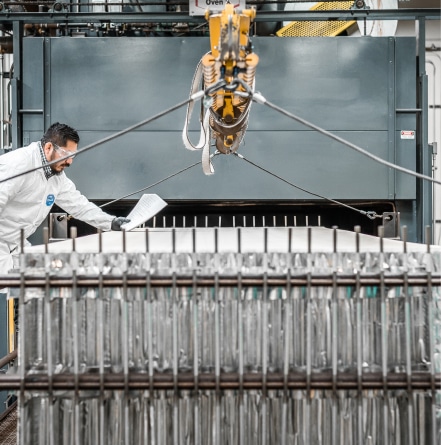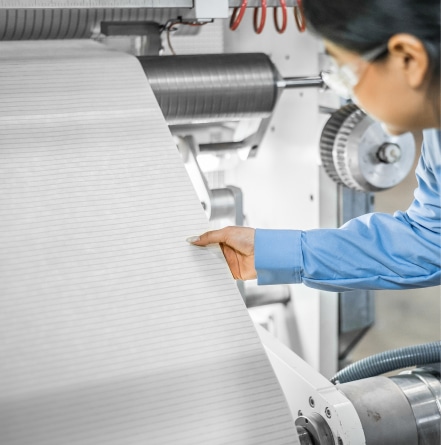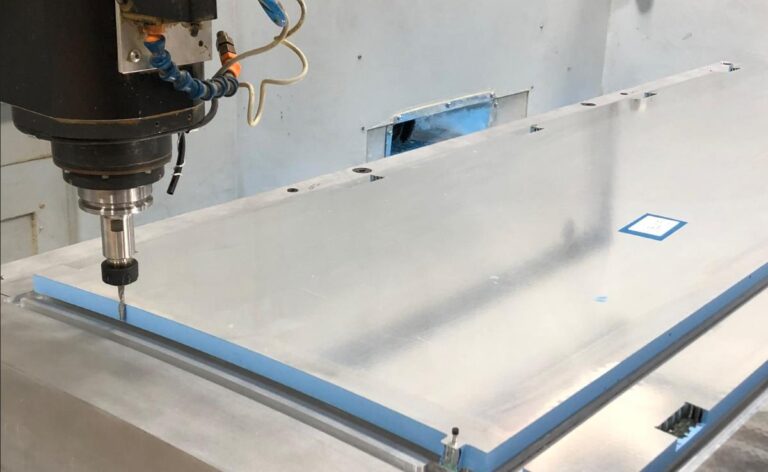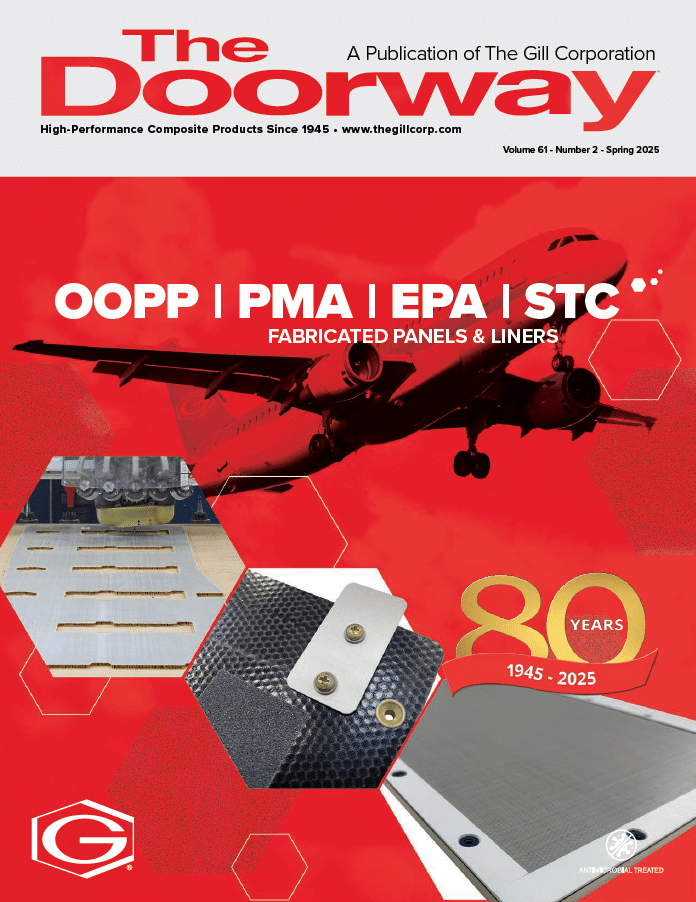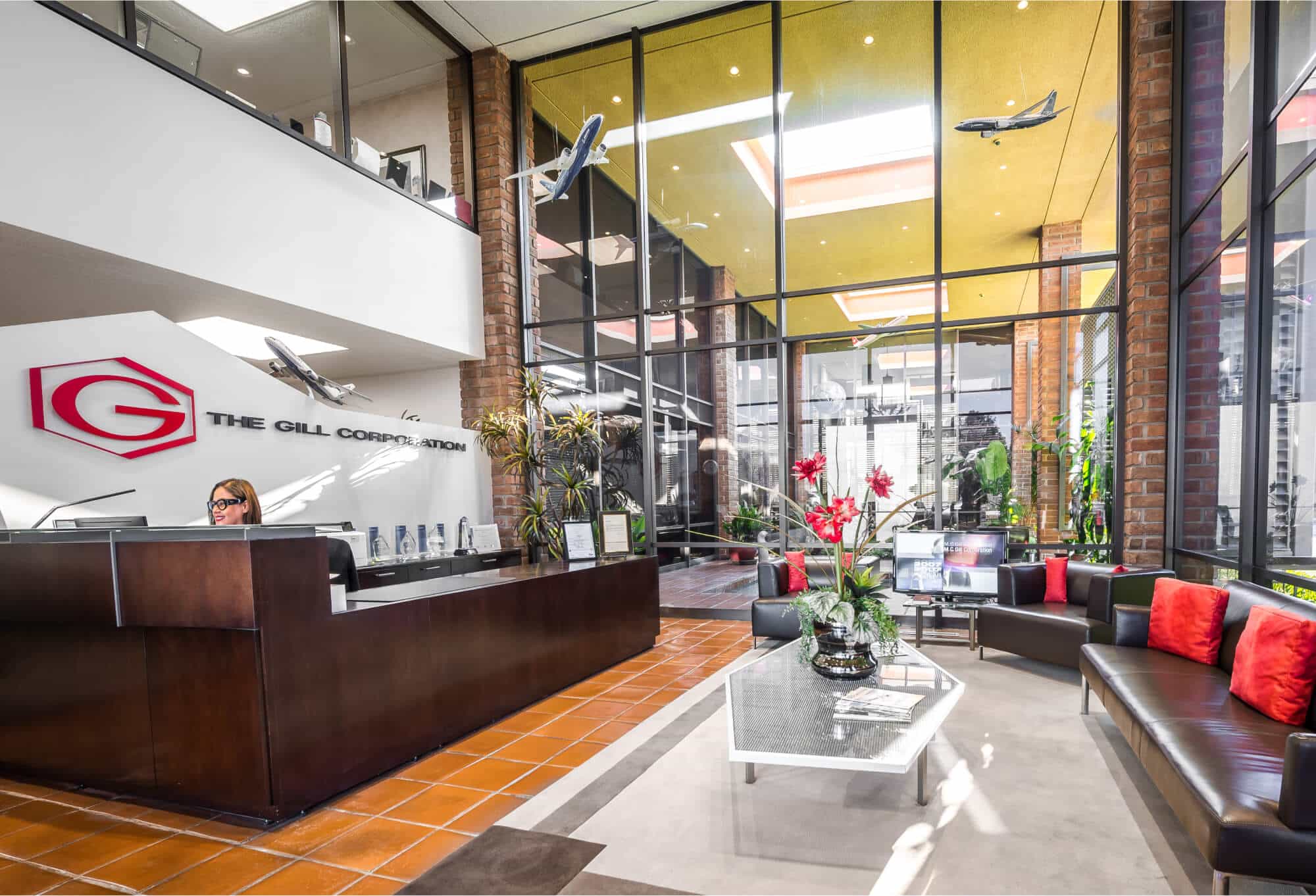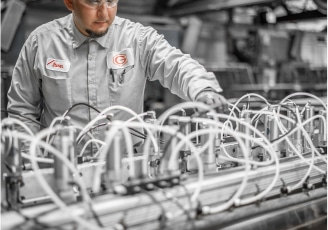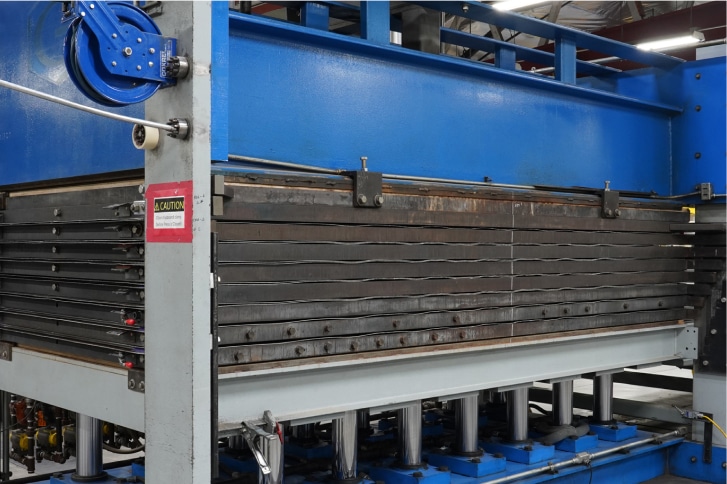
Lightweight, High Performance & Acoustic Damping make Sandwich Panels Hard to Beat.
Our vertically integrated manufacturing process allows us to control every aspect of the production process, from the prepreg composite facings to the metallic and non-metallic core materials.
With this level of control, we can ensure that every sandwich panel we produce meets the most rigorous strength and weight requirements while offering maximum design flexibility and shear strength.
Sandwich panels are bonded structures consisting of facings and adhesives with a core material. The Gill Corporation’s vertical integration capabilities allow for production of all composite facings using prepreg processes, adhesives, and metallic and non-metallic core materials. The sandwich structure is similar to an I-beam, where the facing act as flanges to transfer bending loads, while the core acts as the web to transfer shear loads.
Sandwich panels offer maximum design flexibility and shear strength. Specific mechanical and physical properties can be achieved using different cores, facing materials and build-ups.
Meeting FST Requirements Where Required
Sandwich panels are a popular choice in transportation and aerospace industries where stringent FST (fire, smoke and toxicity) requirements are mandatory.
The lightweight core and durable outer layers used in sandwich panel construction allow manufacturers to create products that meet FST requirements without sacrificing performance or adding unnecessary weight.
With their excellent FST properties and superior strength-to-weight ratio, sandwich panels are ideal for industries where both safety and efficiency are critical considerations.
Evaluation Criteria
SAFETY
Fire resistant; low toxicity and smoke emissions in a fire.
WEIGHT
Low initial weight; minimal weight gain when exposed to moisture, or when fastening systems and edge sealing are added.
DURABILITY
Corrosion and abrasion resistant; resistant to repetitive loading, e.g., fatigue from flexural stresses, point loads such as stiletto heels or rolling cart wheels; dent and puncture resistant; environmental resistance; no loss in strength from fabricating or from the addition of fasteners.
COST
Ease of fabrication from raw stock panel to “ready to install,” e.g., simple installation of fasteners and rapid cutting with proper tools; inexpensive installation accessories such as inserts or other fasteners and edge sealant or close-out; high yield from raw stock panels, e.g., panel dimensions can be made compatible with finished sizes and resistant to edge damage during cutting using accepted cutting procedures.
Panel Designs
REINFORCEMENTS
- Unidirectional Glass (E/S)
- Woven Glass (E/S)
- Unidirectional Carbon
- Aluminum
RESIN MATRICES
- Epoxy
- Phenolic
- Vinyl Ester
- Polyester
- Nylon
CORES
- Aluminum Honeycomb
- Meta-Aramid Honeycomb
- Para-Aramid Honeycomb
- End-Grain Balsa Wood
ADHESIVES
- Epoxy
- Phenolic
- Contact
Passenger Compartment Applications
- Floor panels
- Class dividers
- Lavatory
- Galley
- Monuments
- Side walls
- Stow bins
- And other applications
Cargo Bay Applications
- Floor panels
- Sidewalls
- Ceilings
- Partition walls
- Bulkheads
- Cargo linings
- Decompression panels
- And other applications


